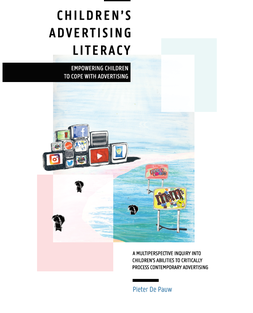Children's Advertising Literacy
Researcher(s): Pieter De Pauw
Promotors: Liselot Hudders and Veroline Cauberghe
Duration: September 2014 to August 2018
Description
Children today are not only exposed to advertising more frequently than ever, but also to many ‘new’ forms of advertising. Most characteristic is that these integrate advertising in highly entertaining and engaging media formats, such as movies, videogames and YouTube vlogs. It is generally indicated that, as children are still developing, they will more consciously engage with this explicit, immersive content, rather than with the implicit, commercial content. Thereby they are unlikely to muster the necessary motivation and cognitive resources to cope critically with the embedded advertising, and to develop the relevant advertising literacy needed to deal with future exposure to advertisements using similar tactics. Ultimately, this implies that children are most vulnerable to preconscious and possibly unwanted persuasion.
These concerns have sparked a lively debate, which seems to be dominated by two major assumptions. In particular, it is thought that 1) children are unable to adequately cope with contemporary advertising, though 2) can they can be enabled to deal with advertising, but only through ‘affective defense mechanisms’ – that is, by encouraging resistance through having them evoke negative attitudes when confronted with advertising. As these assumptions may have far-reaching consequences for the societal and political approach of this topic – for instance, adherence to protection or restriction versus empowerment – the present dissertation scrutinizes their validity using a variety of academic perspectives and methods. More specifically, it is examined 1) whether 8- to 12-year-old children have the potential to cope with these ad formats, and 2) whether they can be enabled to do so in a conscious, well-advised, cognitively elaborate and critical manner (on the moment of exposure), rather than through affective defenses only.
Full description and dissertation available here.
